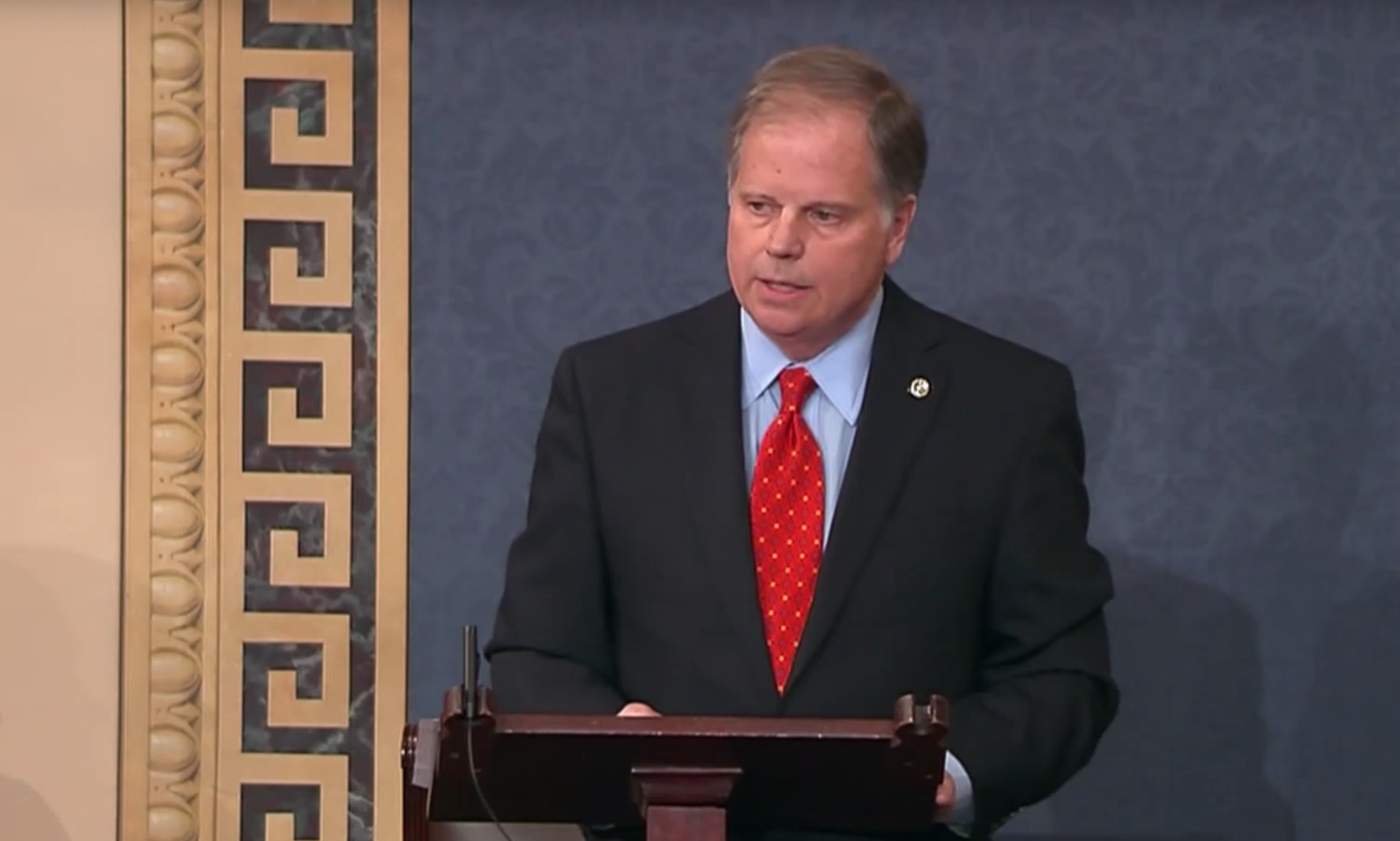Two bills that would have reopened the government after nearly six weeks failed to pass the Senate Thursday.
One, a Republican-backed plan supported by President Donald Trump, included $5.7 billion for a border wall. Another, backed largely by Democrats, was a clean funding measure that included no funding for a wall.
Both plans died, but the Democratic bill received two more votes in the Republican-controlled Senate than Trump’s plan. In back-to-back votes, both bills failed to reach the 60-vote threshold they needed to advance.
The Republican bill died with a 50-47 vote. The Democratic bill died with a vote of 52-44.
Alabama Sen. Doug Jones, a Democrat, voted for the Democratic legislation.
“Along with six of my Republican colleagues, I fulfilled my commitment to the thousands of federal employees and contractors to immediately re-open the government, as well as the farmers of south Alabama who were hit so hard by Hurricane Michael, by supporting an amendment that would have funded the government through February 8,” Jones said.
Sens. Susan Collins of Maine, Lisa Murkowski of Alaska, Cory Gardner of Colorado, Mitt Romney of Utah, Lamar Alexander of Tennessee and Johnny Isakson of Georgia voted in favor of both bills.
Trump planned to trade a temporary, three-year extension of DACA and Temporary Protected Status for the border wall.
Democrats called the deal dead on arrival, saying it was Trump who removed DACA and TPS protections in the first place and that the deal was worse than a 2018 deal that would have made DACA permanent in exchange for border wall funding.
Democrats agreed to that deal, which would have given Trump $20 billion in funding for the wall, last year, but Trump wouldn’t support it, which led to a shutdown in early 2018.
He also rejected a second similar bipartisan deal in February 2018 that included $25 billion for the border and a pathway to citizenship for immigrants. The Supreme Court has also delayed the effects of Trump’s DACA decision.
As of Jan. 22, the court still hasn’t announced when it may take up the DACA case, which means it will likely stay frozen for several more months, meaning DACA recipients can’t be deported. They may not even rule until 2020, which decreased some of Trump’s leverage.
He said he was initially open to Trump’s plan, even if it included border wall funding, but the final draft included provisions that were “unacceptable” to him.
“When I saw what the President had added to the plan he announced just five days ago, particularly as it pertains to the limitations and additional hardships placed on families and children who are legitimately seeking refuge in this country from violence in their own countries, and doing so through the legal asylum process, I could not vote for it despite my consistent support for stronger border security,” Jones said.
The failed vote came just as 800,000 federal employees are set to miss their second paycheck. The shutdown will move into its sixth week early Saturday morning.
As the shutdown continues, Jones reiterated his call for colleagues to come together and find an agreement.
“How can we ever expect the people of this country to come together if our leaders won’t sit down and work to find common ground?” Jones said. “I am committed to doing that. We need to reach across the aisle and end the growing crisis within our borders created by this government shutdown.”






















































